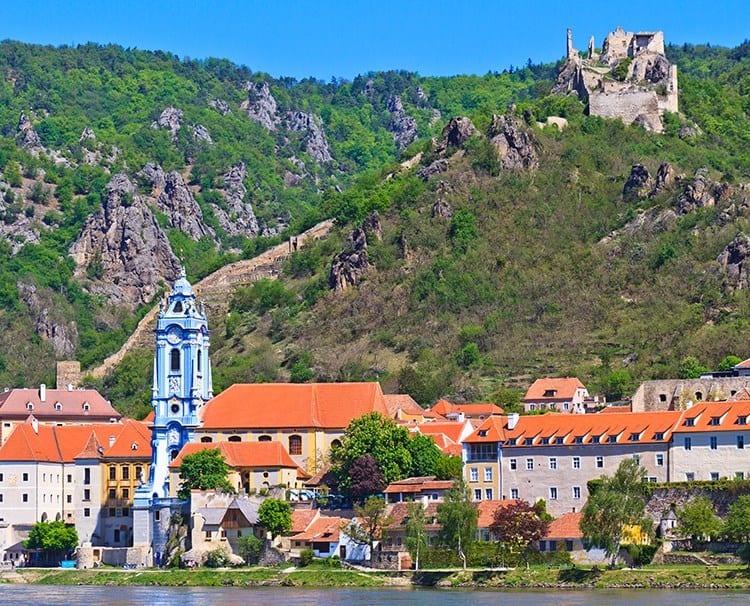Home to a well-known wine area, Dürnstein is celebrated for its vintages, its fairytale-like setting of picturesque architecture and vistas, incredible historical importance –and even apricots. Durstein is home to the Keunringer Castle in 1192, that Richard the Lionheart was imprisoned and held captive for a year by Leopold V, Duke of Austria. It is this singular event which originally put the city on the map and forever left an impressive imprint. Discover the charms of this Austrian town on our Danube itineraries.

Apricots and Wine
One of the most enjoyable ways to revel in the beauty of Dürnstein is with a sip of the region’s superb wine and a taste of its famed apricots. Apricot liqueur, apricot brandy, chocolate and jams are all indulgent and delicious treats.
The Stories of Keunringer Castle
Sometimes called the ‘Pearl of the Wachau,” Dürnstein was first mentioned in 1192 when Richard the Lionheart (also known as Richard I of England) was kept captive in the city’s castle during the Third Crusade. The castle may now be in ruins, but it was once impressive enough to hold one of Europe’s most renowned rulers. And while Richard was released upon an enormous ransom, there is a legend that tells of a faithful servant Blondel who located him by traveling throughout the land singing a secret song until he heard a prisoner able to sing it back to him.
Of course, for this legend to be real, Blondel would surely have had to climb the hill the castle is perched on. If you choose, walk in the footsteps of history as you follow Blondel’s path up to a hill which rewards with stunning views of the city and valley below.
A Tower of Blue

Alternatively, admire the castle from afar and soak in the beauty of the cobblestone narrow streets, colorful homes, historic buildings and the famed Abbey Church. The former Augustinian Monastery of Dürnstein, the Abbey and its unique blue tower are one of the best loved landmarks of the city. While the church was originally built in 1372, the tower (and indeed, the church that we see today) was constructed centuries later as part of a major renovation. Its luminous blue and white colors symbolize the resurrection and overcoming of suffering in a freer, celestial world. The tower’s façade further includes numerous sculptures and a clock. The Baroque-style Abbey continues to be a popular place of worship and is often the setting for weddings.
Embrace scenic views of Dürnstein, the true pearl of the Wachau Valley, during our Danube itineraries.